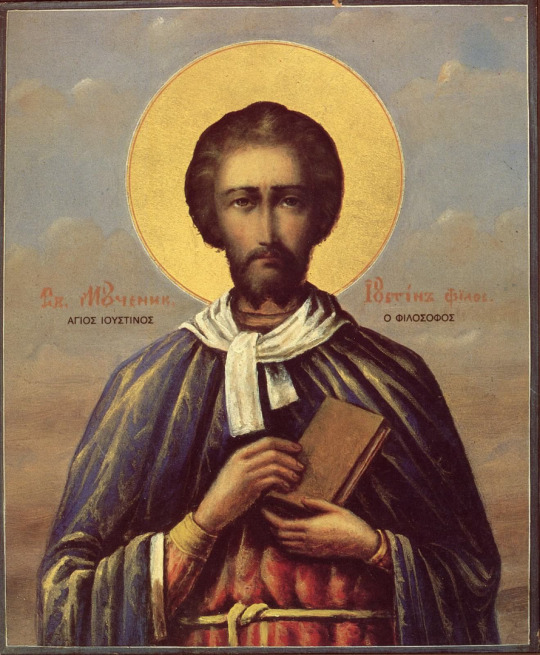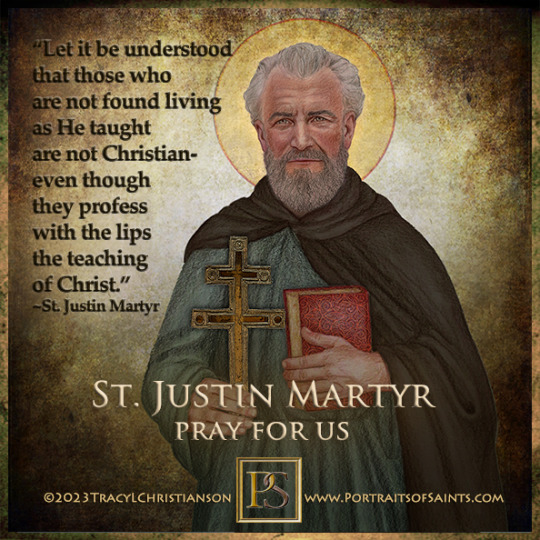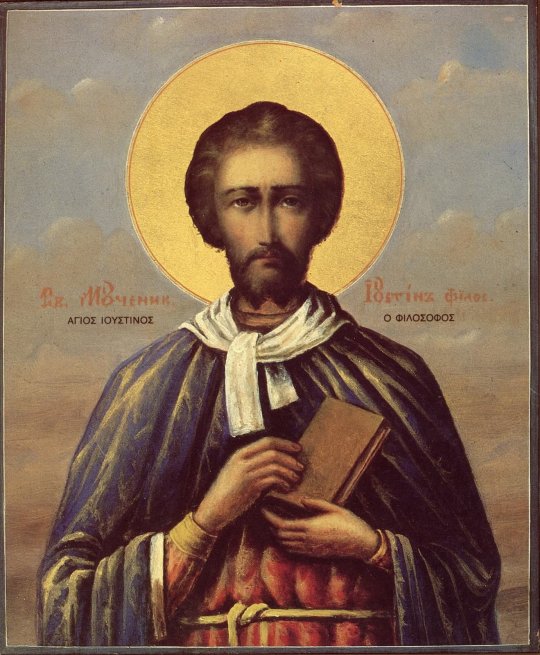#justin martyr
Explore tagged Tumblr posts
Text
“Not one of those Christians”

(by request)
I got the saddest compliment yesterday.
Someone had found this blog and read a bunch of posts. Then messaged me to let me know that one of the posts had been really helpful for them. That it spoke to something that they were struggling with from their childhood.
I thanked them for letting me know. And told them the truth – that if it’s good, it’s all God’s doing.
They went on to confide in me, about how they grew up in a church where Jesus was used as a weapon. About all they had done to get away from that church, from its culture of division. And from its angry, hateful God.
About how they were struggling to have healthy relationships, with others and with God.
Then they thanked me for “not being one of those Christians.”
I’m still struggling with how to respond to them.
My heart breaks for the child that was abused. It may not be as visible as physical abuse, but spiritual and emotional abuse also does lasting damage.
Part of me wonders if the people who did it even realized the harm they were doing in the name of God. It made me think about something that Justin Martyr (today’s saint) said, about what it really means to be a Christian.
“We used to hate and destroy one another and refused to associate with people of another race or country, with people different from ourselves. Now, because of Christ, we live together with such people and pray for our enemies.”
That’s what we’re supposed to be doing, if we mean it. If we’re really trying to be Christians.
Understand that Justin is saying this in the mid-100’s, during a Roman persecution of Christians that would go on for a decade. And would lead to the deaths of many of the early martyrs, including Justin.
We’re supposed to do that, even when there’s every reason not to. And not just to our enemies, but first to each other. To our family, friends, and fellow Christians. Whether we think they deserve it or not.
Anything less – like closing our hearts to God, weaponizing our beliefs, or remaking our Lord in ways that suit our fear and our anger – isn’t living the Faith. It’s selling out the Faith.
As Justin put it, “those who are not found living as He taught are not Christian – even though they profess with the lips the teaching of Christ.”
May God grant us the grace of “not being one of those Christians.”
Today’s Readings
#Spiritual Abuse#Weaponized Faith#Unhealthy#Together#Pray for them#God's Love#God#Jesus#Catholic#Christian#Church#Catholicism#Justin Martyr#Moments Before Mass
45 notes
·
View notes
Text

46 notes
·
View notes
Text
Completely absent from the thought of the Fathers is the eudaemonistic teaching about destiny and the identifying of the mind with the divine essence.
Before Justin became a Christian he used to argue in a Platonic manner: "Philosophy is the science of being and the clear knowledge of truth, and eudaemonia is more revered than science and wisdom." The elder Trypho questions Justin, "What is it in us that is akin to God? Is the soul also divine and immortal and a part of that regal Mind itself? And as the mind sees God, is it also attainable by us to comprehend the Divinity in our mind and thence become happy?" Justin, in the end, replies negatively.
Thus, regarding his turning to Christ he writes,
"I spent as much of my time as possible with a man who had recently settled in our city, an intelligent man who was prominent among the Platonists. I progressed and made the greatest possible advancement every day. And the perception of incorporeal things uplifted me, and the contemplation of the ideas gave wings to my mind. Within a short time, I thought I had become wise, and I stupidly expected forthwith to look upon God, for this is the aim of Plato's philosophy."
Philosophy's teaching of moral perfection is not capable of transcending the idea of selfish eudaemonia because, for the latter, that which is perfect is unmoved toward anything outside of itself. If it is thought to move toward something, then the unmoved either moves toward that which is part of itself (pantheism), or it is not truly perfect. The moral perfection of those things that derive from the One is acquired through their union with the most high One, and then every movement and desire is terminated.
In other words, moral perfection consists in the fulfilling satisfaction of the selfish eudaemonia of man. It has nothing to do with the attainment of unselfish love but instead with the total and highest degree of fulfillment of the selfishness that rules man.
According to these presuppositions, then, the fall consists of an inexplicable turning away of man's selfish love from the highest good to secondary things. Consequently, the penalty for this irrational act consists mainly of the deprivation of the only thing capable of really satisfying man's selfish inclination to eudaemonia.
The West's great debates about whether divine grace is necessary or not for the achievement of man's destiny are based on such presuppositions. Accordingly, for the West the image and likeness of God in man cannot be mainly a matter of spiritual labor for the attainment of unselfish love that seeks not its own. The functioning and makeup of the soul and will that seek selfish eudaemonia are just as they were when God first made them; the mechanism is wholly in tact. The soul lacks only the correct object towards which it needs to be directed.
For the West, therefore, it is not a matter of spiritual labor to attain the image and likeness of God in the full freedom of being perfected, as it is with Greek patristic theology, but merely a matter of losing or gaining the highest good.
Ancestral Sin John Romanides
8 notes
·
View notes
Text


Today’s Reflection
Jesus in our gospel today knew his opponents well that they sat in their pride and for this what could Jesus say or do that would convince his opponents, with sufficient proof, of his authority, as did John. For they would not listen or even receive the truth and for this, there consequence will be harsh. Yet, there is still hope, for God gives everyone plenty of opportunities in life to receive him, but we must be wise as much as those in our first reading who take the time to listen and then respond appropriately to the message of God; that is we are to love and give respect to all we encounter in life. This includes our enemies and all those we have a hard time to understand or being around. This is then is our good news, for responding as such we are received into the kingdom of God to be with Jesus for all eternity.
Today’s Spiritual Links for June 01, 2024
National Eucharistic Review Today’s Mas Readings Today’s Reflection Rosary Liturgy of the Hours New American Bible Non-Scriptural Reading Prime Matters
0 notes
Text

THE DESCRIPTION OF SAINT JUSTIN Feast Day: June 1
"No one who is rightly minded turns from true belief to false."
The First Christian Apologist, was born in Flavia Neapolis, Judea (now Nabius) of pagan parents in 100 AD. He was converted to Christianity at 30, after witnessing the martyrs' heroic death. Thereafter, his whole life devoted to the study and the propagation of the Christian faith.
He said: 'It is our duty to make known our doctrine, lest we incur our guilt and punishment of those who have sinned through ignorance.'
To serve the purpose, he wrote two 'Apologies' and the 'Dialogue with Trypho', which contain valuable information about the early Church's faith and practices. After opening a school in Rome, Justin held public debates with pagan philosophers, whom he convicted of ignorance and prejudice.
One of them, a cynic named Crescens, had him arrested together with six companions.
To the prefect Junius Rusticus, who urged him to sacrifice to the gods, Justin replied: 'Nobody in his senses gives up truth for falsehood. We asked nothing better than to suffer for the sake of our Lord Jesus Christ and to be saved.'
Justin and his companions were beheaded in 165 AD at the age of 65, during the reign of Marcus Aurelius.
0 notes
Text
Jesus is Our Sabbath
Thesis: Jesus is our Sabbath... a response to those who insist that only the Sabbath day is only legitimate day for worship. The Ten Commandments in relationship the Sabbath and the New Covenant in relationship to the Covenant of Noah for the Nations.
Reprint from Scholars Corner Jesus is our Sabbath, our Day of Rest. He is the fulfillment of the Law. For he said, “Do not think that I have come to abolish the Law or the Prophets; I have not come to abolish them but to fulfill them.” Matthew 5:17 (ESV) Therefore it says: “It is because of him that you are in Christ Jesus, who has become for us wisdom from God—that is, our righteousness,…

View On WordPress
#10 Commandments#7th Day Adventists#apostles#Constantine#Council of Nicea#Didache#grace#holiness#Holy Spirit#Ignatius#Jerusalem Council#Jesus#Jesus Christ#Jesus is our Sabbath#Justin Martyr#Kosher#New Covenant#Noah#Sabbatarian#Sabbath#sin#Sunday Worship#Torah
0 notes
Text
Jesus is Our Sabbath
Thesis: Jesus is our Sabbath... a response to those who insist that only the Sabbath day is only legitimate day for worship. The Ten Commandments in relationship the Sabbath and the New Covenant in relationship to the Covenant of Noah for the Nations.
Reprint from Scholars Corner Jesus is our Sabbath, our Day of Rest. He is the fulfillment of the Law. For he said, “Do not think that I have come to abolish the Law or the Prophets; I have not come to abolish them but to fulfill them.” Matthew 5:17 (ESV) Therefore it says: “It is because of him that you are in Christ Jesus, who has become for us wisdom from God—that is, our righteousness,…

View On WordPress
#10 Commandments#7th Day Adventists#apostles#Constantine#Council of Nicea#Didache#grace#holiness#Holy Spirit#Ignatius#Jerusalem Council#Jesus#Jesus Christ#Jesus is our Sabbath#Justin Martyr#Kosher#New Covenant#Noah#Sabbatarian#Sabbath#sin#Sunday Worship#Torah
0 notes
Text
I've Been Ignoring Certain Jesus Followers for Way Too Long
The Apostolic Fathers in English God Running is a place for anyone who wants to (or even anyone who wants to want to) love Jesus more deeply, follow Jesus more closely, and love people the way Jesus wants us to. Continue reading Untitled

View On WordPress
#Christian authors#Church Fathers#Justin Martyr#Justin Martyr dialogue with Trypho#Kurt Bennett bibliography
0 notes
Text
Kenosis and the Works of Mercy
Do nothing from selfish ambition or conceit, but in humility regard others as better than yourselves. Let each of you look not to your own interests, but to the interests of others. Let the same mind be in you that was in Christ Jesus, (Phil 2:3-5)
Following verse 5 in the second chapter of Paul's epistle to the Phillipians is the famous declaration of Jesus' kenosis, his self-empting. Here St. Paul reminds us how Jesus, while divine, sacrificed his own divinity in order to redeem our humanity.
Though he was in the form of God, did not regard equality with God something to be grasped. Rather, he emptied himself, taking the form of a slave, (Phil 2:6-7)
As I heard the second reading today it dawned on me how the theology of kenosis was preceeded by St. Paul on what this means for us. Kenosis calls us to rebuke our own self-interest and all selfish desires. Jesus offers us his own example. He offered the dignity of his divinity in order to serve all humanity. We know that we too share in the divine dignity, but kenosis reminds us that this dignity is not meant to serve our own interest but to serve the common good.
It struck me that the mystery of kenosis provides the basis for why we are committed to acts of charity and justice. We recognize and celebrate our God-given dignity by serving all those whose dignity is crushed by social and spiritual forms of oppression. This is the connection between St. Paul's proclamation and Jesus' testimony of the last judgment, we will be judged by our service to one another, and especially the least of us. Nothing else can testify to our divine nature like the model of service that Jesus invites us to imitate, the imitatio dei.

The mystery of kenosis is a fascinating aspect of Christology. The sacrifice of Christ which we celebrate at the Mass calls us to enter into this mystical sacrifice. We liturgically participate in this mystery as we consume the body and blood of Christ but we then enter into the sacrifice of the Mass when we serve others. We particpate in Christ's kenosis by offering our own divine dignity for those who are in need. Kenosis leads to metanioa; the conversion we go through when we recognize the self-less divine nature of Christ and ourselves. Justin Martyr instructed the Roman Senate about this conversion towards charity and justice back in the second century.
We who once took most pleasure in the means of increasing our wealth and property now bring what we have into a common fund and share with everyone in need; we who hated and killed one another and would not associate with men of different tribes because of [their different] customs, now after the manifestation of Christ live together and pray for our enemies and try to persuade those who unjustly hate us, so that they, living according to the fair commands of Christ, may share with us the good hope of receiving the same things [that we will] from God, the master of all.[1]
This is at the core of what it means to follow Christ and take up our own kenosis. We start by recognizing our own dignity and then offer it up to serve the Kingdom of God.
[1] Richardson, Cyril, Early Christian Fathers, (Simon & Schuster, New York, NY, 1996), pg. 249 and 250.
0 notes
Text
Dr. Michael Vlach: Has The Church Replaced Israel? Part 2
The following lecture by Dr. Michael Vlach, Associate Professor of Theology at the Master’s Seminary in Sun Valley/California/USA, is part 2 of a five-part series in which the theologian and author confronts and refutes the unbiblical “Replacement Theology” (also known as Substitution Theology or Disinheritance Theology). In this lecture, Dr. Vlach (after some remarks about American football 🙂 )…
youtube
View On WordPress
#12 biblical reasons to refute Replacement Theology#Bible#Christian Faith#Church Fathers#Disinheritance Theology#Dispensational Theology#Dr- Mike Vlach#Encouragement#God#Jesus Christ#Justin Martyr#New Testament#Old Testament#Replacement Theology#Substitution Theology#Youtube
0 notes
Text
224 notes
·
View notes
Photo

Saint Justin Martyr c. AD 100 - C. AD 165 Feast Day: June 1 Patronage: philosophers. lecturers, orators, apologists, speakers
Saint Justin Martyr was the son of pagan parents that came to the faith through Platonic intellectual philosophy. He was the first great apologist and his writing today continues to teach and defend the faith. His writings describe the Catholic Mass and the real presence of Jesus in the Eucharist. Justin died after being scourged and then beheaded for refusing to sacrifice to the gods.
Prints, plaques & holy cards available for purchase here: (website)
79 notes
·
View notes
Text

what the fuck is justin martyr doing in dionysus reviled: transgender visibility and the pentheus complex (Literski 2018 p. 59). i thought i was free
#you try do a classical receptions essay on transgender contagion and tbutch dionysus and still. justin martyr and christian apologetics#finds you. this author is a psych phd student. why is he here!!!#capstone#this tag needs 2 die
2 notes
·
View notes
Text

After the one who presides at our worship has given thanks and all the people have given their assent, those who are called deacons give to each person present the bread and the wine mixed with water, over which the thanksgiving was offered, so that all may partake. This food is called by us the Eucharist. It is not lawful for anyone else to partake of it other than those who believe the things that we teach are true and have been washed in the waters of baptism for the remission of sins and rebirth, and who live by the teachings of Christ. We receive this food not as ordinary bread and drink. Just as Jesus Christ our savior became flesh and blood for our salvation, so we have been taught that the food that has been blessed by the prayer of His Word is the flesh and blood of that Jesus who was made flesh and nourishes our flesh and blood. For the apostles, in their memoirs that are called Gospels, have passed on to us the things that Jesus commanded them. They relate that Jesus took bread and after giving thanks, said "This is my body. Do this in remembrance of me." And in like manner, having taken the cup and given thanks, he said, "This is my blood" and gave it to them alone.
-- St. Justin the Philosopher and Martyr, who was executed in Rome for being a Christian circa 155AD in his The First Apology written to the Emperors Antoninus Pius and Marcus Aurelius, and to the people of Rome: 66 --
13 notes
·
View notes
Note
!!!!
Fallen angel Ash + Red??????? do tell :D
OKAYYYY i've already Established red and ash in the last ask so. let's talk abt their dynamic as fallen angels shall we? ^_^ (ramble under the cut)
so the dichotomy between then is that red accidentally became a fallen angel while ash intentionally fell from heaven. although both of them have themes of free will, the way free will plays into their fall from grace is vastly different. red used free will and had a consequence that was Much Harsher than ash, who knew exactly what is gonna happen when he fell (and he wasn't really a big fan of angelhood anyways)
also on top of that, red mourning his angelhood while ash just. simply cant understand is sooo. yeah. red and religious trauma. (he has so much of that oh my god) . and also red not understanding ash's willingness to rebel intentionally. insert thing about their ideologies being Directly opposed here bc ash thinks red isn't living his best life for being so willing to submit himself to a higher power. Yeah
but the thing is. even though they're fallen angels for vastly different reasons, they're still the closest thing they have to understanding each other. because whether they like it or not, they're still in the same place. after everything. so an arc where they reluctantly accept each other and talk about fallen angel stuff would go so hard i think. (also add them working out their feelings together and *chefs kiss* i loveeee that trope sm)
and maybe. once they work things out and realize they only have each other, they can have hope that things will be better. because they have each other. they might not understand the other all of the time, but from what they understand, they can forge something between the others. and maybe from that, they can realize they can survive this new and cruel world they find themselves in (also yes this is another paradise lost parallel. guess what story sparked my idea for this /silly)
(^ also that one is inspired by the ending of paradise lost where micheal [non fallen angel] talks to adam and tells him to story of jesus and how there won't be a battle against satan and how jesus [adam's future son] will be hurt and killed instead. but even as adam hears that, he still has hope things will be better. even if everything is horrible rn. he still has hope because he was made in gods image. and its a wonderful parallel to an earlier scene where satan is sitting in the garden of eden and crying at all of the grace and beauty of it and yet he doesn't feel better because he's so full of hatred and spite. that has nothing to do with the hc its just one of the coolest things in paradise lost i think . )
anyways yeah they make me. very jksdnsdjkgnsgnsdgmns. ty for the ask anon i appreciate it! <3
#ashswag#reddoons#tw caps#media.warning.caps#religious imagery#<- just incase u dont wanna see that#anyways yeah this concept makes me ill!!!!#also not to mention in general i think the aesthetic is awesome#theres this one unholy cover by justine's mic and just the idea of red being with those aesthetics#esp the lyrics 'Crown me with thorns! For her I’ll gladly be a martyr!'#u cannot look at me in the eyes and tell me that Isnt reddoons coded#also iirc there was this one tumblr post that talked about how fallen angels were tragic#because it was the realization that even though they tried their best. they were thrown away when they disobeyed#and how it showed how easily replaceable they were#and i was like 'REDDOONS'#anyways yeah. how much would u laugh that this initial idea for this was for a crack l.oona au#tldr (in ths. lore that they have . in the music video) one of the members was left behind by all of her friends#in the garden of eden#and eventually fell as a fallen angel#anyways i was like 'LMAOOOO c.asino quartet!'#and eventually the idea grew on me so much that it became its own thing and this branched from that#also in general the mv (egoist by o.livia hye) had a really cool aesthetic that i could see red in#so uh. thats the cursed lore for today#anyways moving onto ash a lot of things that people associate with angels (computers statues fungi etc etc)#fit in with my aesthetic for ash A Lot#and then a saw a pic of a statue with angel wings and like. metal wiring in some of the wings#and i went 'ASHSWAG'#and then i watched the paradise lost video and fell in love with the themes of free will and rebellion#so ya ^_^#swagdoons
14 notes
·
View notes
Text
Jesus is Our Sabbath
Jesus is our Sabbath... a response to those who insist that only the Sabbath day is only legitimate day for worship.
Jesus is our Sabbath, our Day of Rest. He is the fulfillment of the Law. For he said, “Do not think that I have come to abolish the Law or the Prophets; I have not come to abolish them but to fulfill them.” Matthew 5:17 (ESV) Therefore it says: “It is because of him that you are in Christ Jesus, who has become for us wisdom from God—that is, our righteousness, holiness and redemption.…

View On WordPress
#7th Day Adventists#Apostles#Constantine#Council of Nicea#Didache#grace#holiness#Holy Spirit#Ignatius#Jerusalem Council#Jesus#Jesus Christ#Jesus is our Sabbath#Justin Martyr#Kosher#New Covenant#Noah#Sabbatarian#Sabbath#sin#Sunday Worship#torah
0 notes